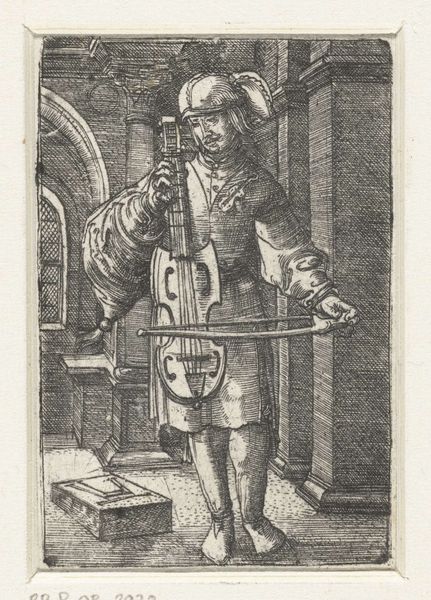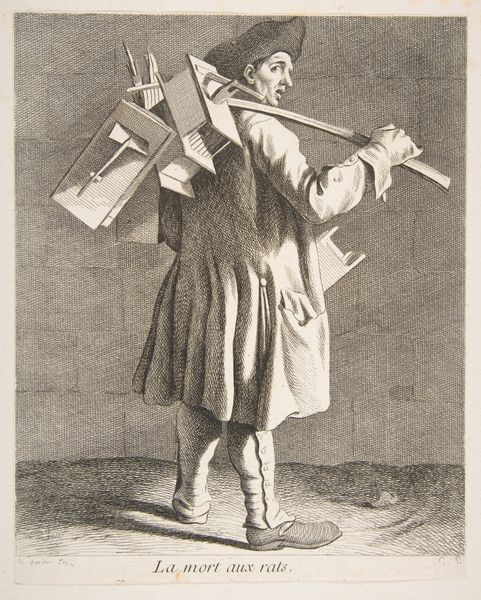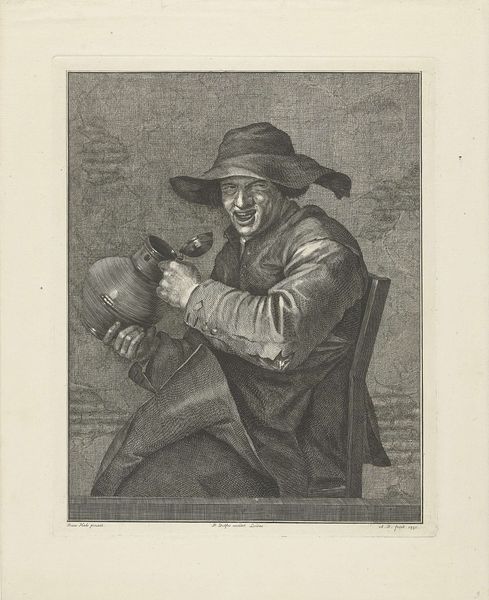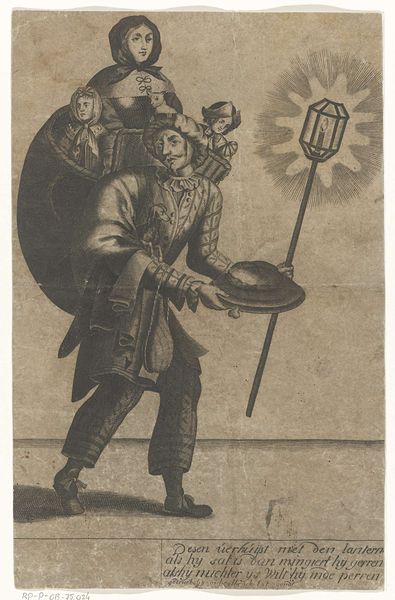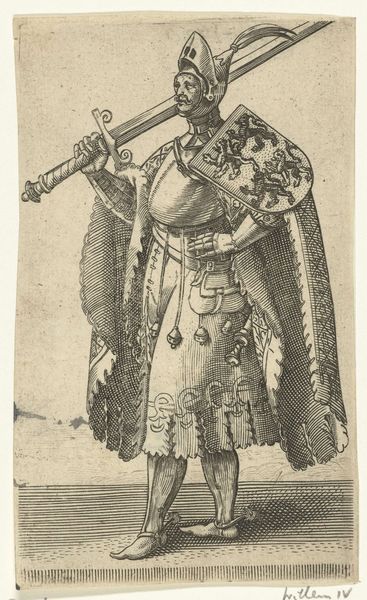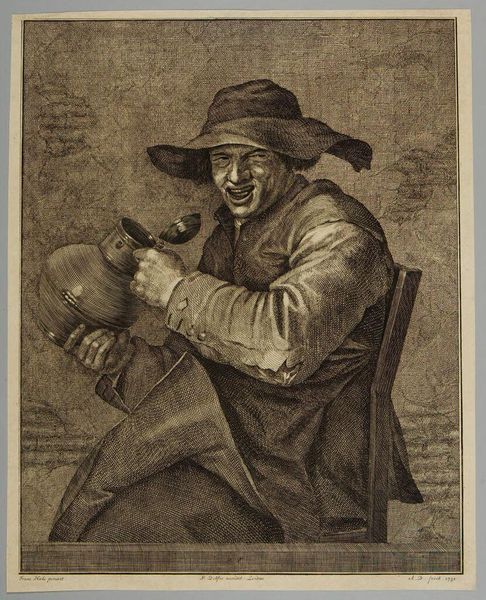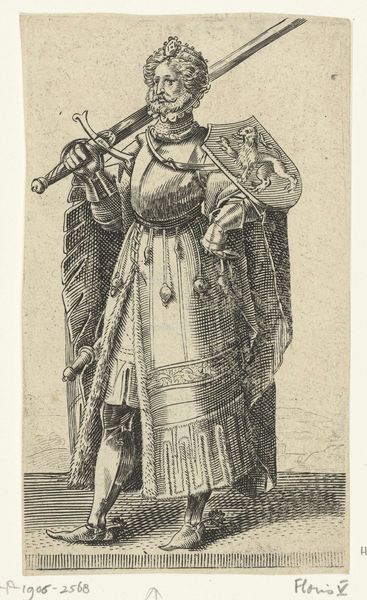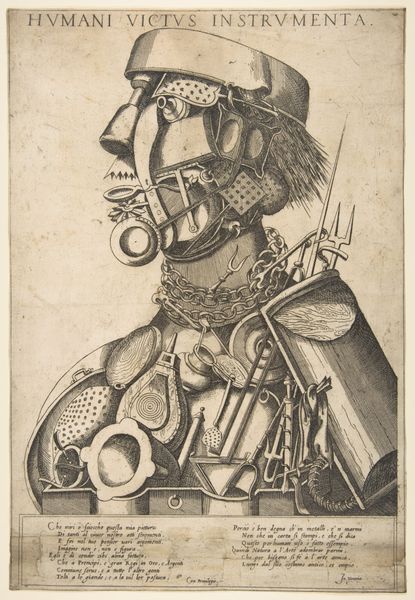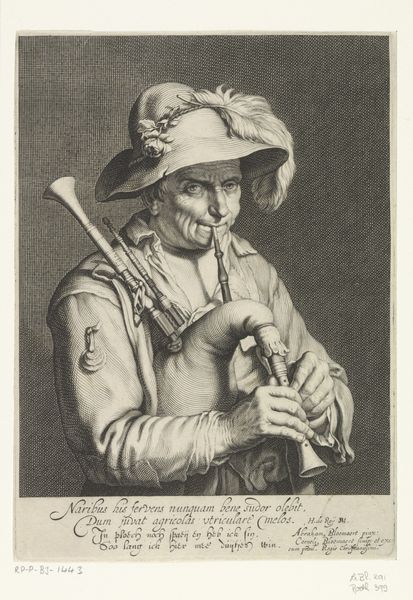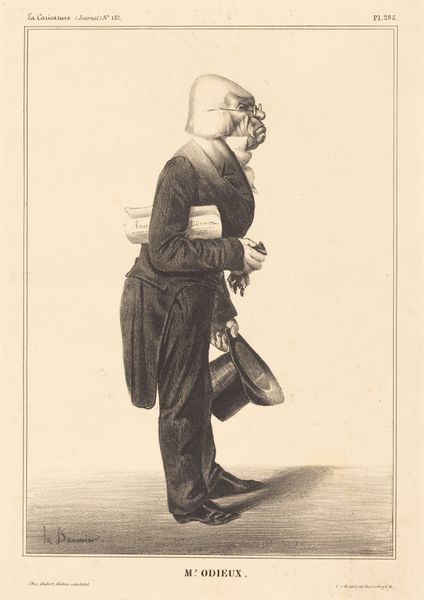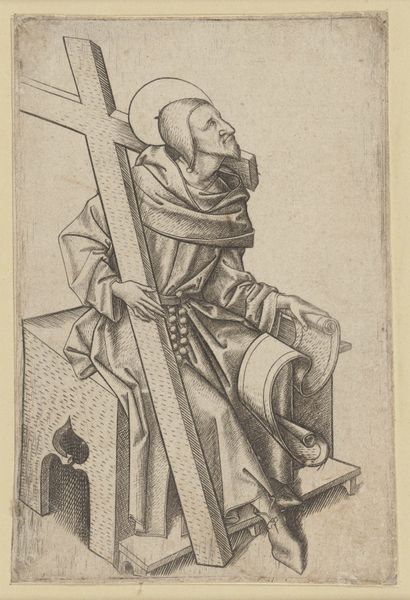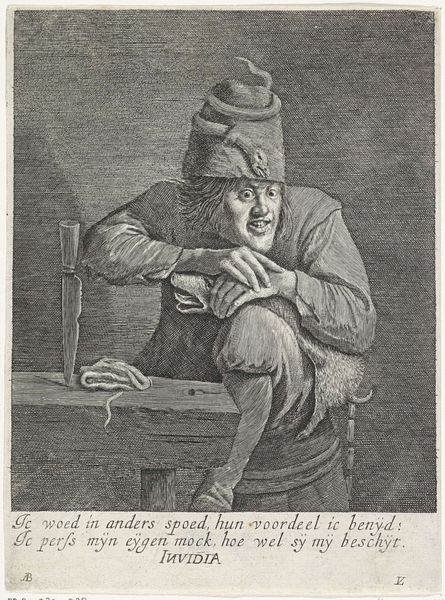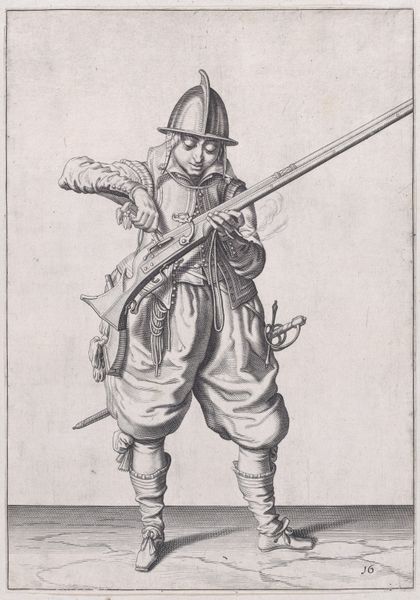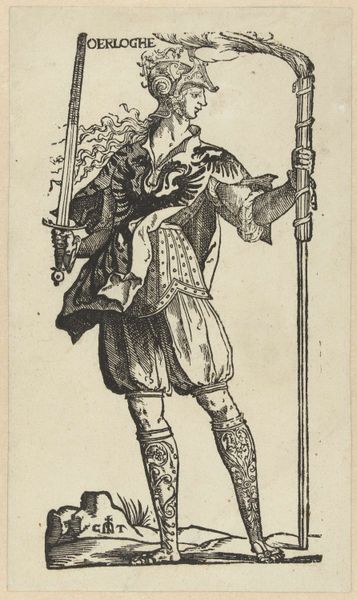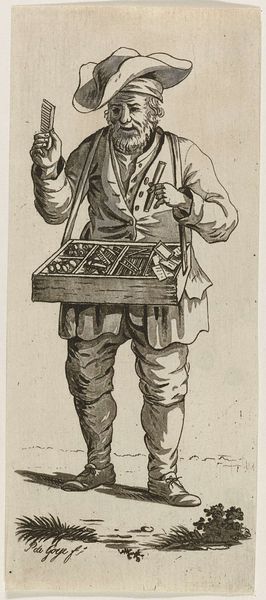
print, engraving
#
portrait
#
aged paper
#
baroque
# print
#
caricature
#
old engraving style
#
genre-painting
#
engraving
Dimensions: height 115 mm, width 90 mm
Copyright: Rijks Museum: Open Domain
Editor: Here we have "Monnik met sleutels," or "Monk with Keys," an engraving by Jacob Gole, probably from around 1670 to 1724. It’s…unflattering! What strikes you about this caricature? Curator: This image, though a caricature, opens up critical avenues to understanding the power structures of the era. It's not just a funny picture; it's a commentary on the perceived corruption within religious institutions. Notice the keys - symbolic of the Church's power to grant or deny access to heaven. How does the artist portray the monk? Editor: With a rather unpleasant smirk and exaggerated features. He certainly doesn't look very trustworthy! Curator: Precisely. Gole uses caricature to critique the Church’s influence and wealth. The inscription beneath, promising access to heaven for a hefty sum, drives home this point. Consider this image in relation to the Reformation and the social unrest caused by religious dogma. It asks us to think about who benefits from the control of spiritual narratives, doesn't it? Editor: So it’s not just making fun of a monk, it's challenging the Church’s authority. The poem seems pretty biting. Were images like these common at the time? Curator: Yes, printmaking was a powerful tool for social critique. Cheap to produce, images like this were widely circulated, enabling the rapid dissemination of dissenting ideas. Think of it as early meme culture – visual arguments quickly spread to challenge authority. Editor: It’s interesting how something that looks like simple mockery can be interpreted as a subversive act. I’ll definitely look at similar images with a different perspective now. Curator: Exactly. It’s about seeing beyond the surface and asking: whose voices are being amplified, and whose are being silenced? Art allows us to look into history but also provides frameworks to approach present socio-political questions.
Comments
No comments
Be the first to comment and join the conversation on the ultimate creative platform.
